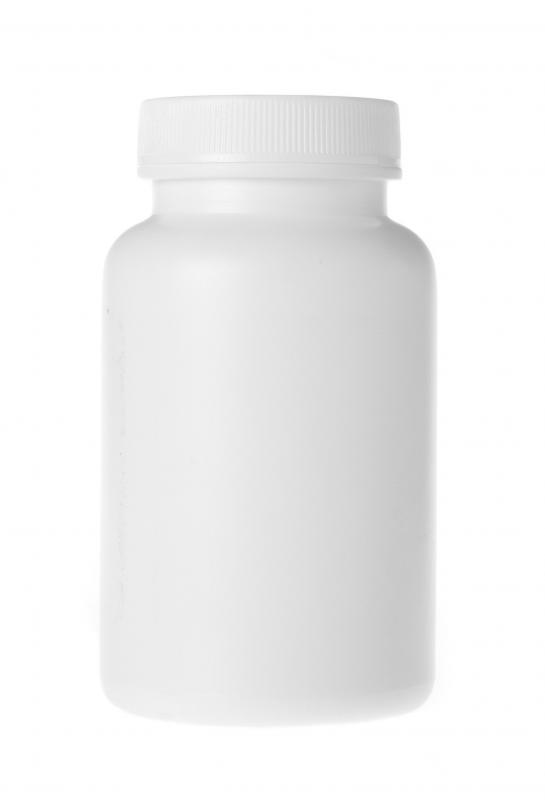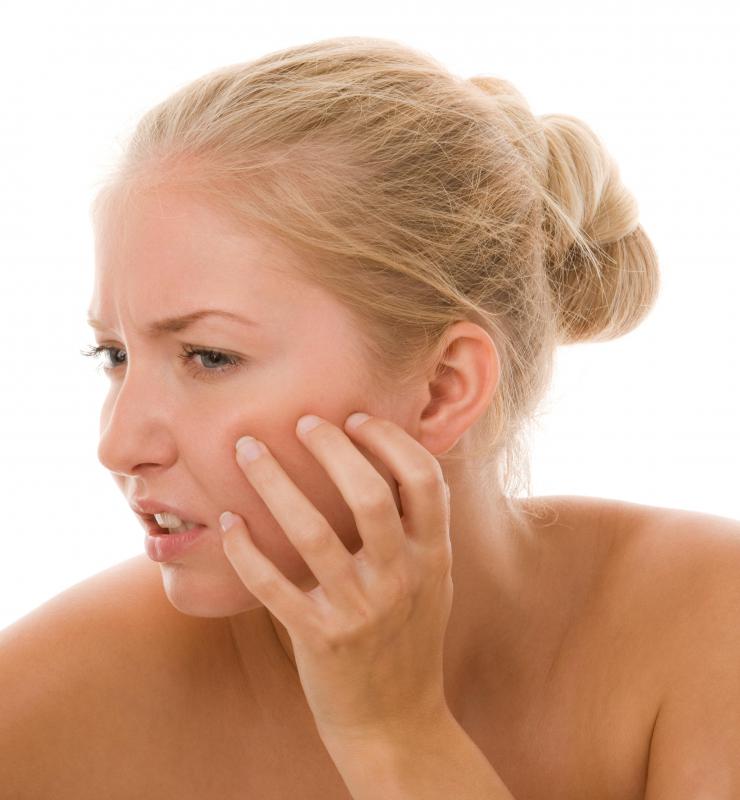At BeautyAnswered, we're committed to delivering accurate, trustworthy information. Our expert-authored content is rigorously fact-checked and sourced from credible authorities. Discover how we uphold the highest standards in providing you with reliable knowledge.
What are the Benefits of Vitamin D for Skin?
Vitamin D offers a variety of health benefits, and vitamins D2 and D3 are the most beneficial forms of vitamin D for skin health. Vitamin D cream or supplements can be an effective treatment for skin disorders such as psoriasis. Vitamin D treatments also might help repair skin damage, prevent infections within skin injuries and rejuvenate the skin.
One of the most well-known uses of vitamin D for skin health is in the treatment of psoriasis. Psoriasis symptoms include itchy and flaky skin, which can be healed and prevented by the topical application of prescription vitamin D cream or by taking prescription vitamin D supplements. Vitamin D3 is desirable for treating skin ailments because it lacks the side effects of other treatments, such as steroids.

Vitamin D3 contains particularly strong anti-inflammatory properties, which makes creams and lotions containing vitamin D for skin effective treatments for burns, skin injuries and skin damage such as stretch marks. The antioxidant effects of vitamin D might prevent skin damage and premature aging of the skin when taken via supplements or diet. Some sufferers of skin disorders have also found symptom relief through careful, balanced sun exposure.

Some scientists claim that vitamin D absorbed through limited sun exposure might prevent skin damage and sunburn by strengthening the skin, making it less likely to burn. Opponents of this theory refer to research showing that excess sun exposure is likely the main cause of most skin cancers. This issue causes major disagreement in the scientific community, and most medical professionals advise anyone at risk for skin cancer to limit sun exposure and take vitamin D supplements to prevent vitamin D deficiency.

Vitamin D deficiency is thought to be a contributing cause of autoimmune disease, bone disease, cancer and cardiovascular disease. In addition to the benefits of vitamin D for skin, research shows that vitamin D supplements might help prevent breast, colon, ovarian and prostate cancer. Nutrition experts recommend 200 international units (IU) of vitamin D per day for adults younger than 50 and 400 IU per day for those 50 to 70 years old. Anyone 71 or older should increase his or her intake of vitamin D to 600 IU per day.

There are few natural sources of vitamin D for skin, and the most common food source is fortified milk. Foods containing vitamin D include beef liver, cheese, cod liver oil, egg yolks and fish. The best source of vitamin D is the sun, but unprotected exposure to the sun’s ultraviolet rays can raise the risk of skin cancer.
AS FEATURED ON:
AS FEATURED ON:















Discussion Comments
I suffer from psoriasis, and though there is no cure, vitamin D creams and sunlight can help ease the symptoms. In addition to scaly skin, psoriasis can also cause joint pain, and luckily, the sun can make that go away, too.
Psoriasis causes my cells to produce too quickly, so I wind up with patches of itchy, scaly skin. The vitamin D cream that my doctor prescribed slows my cells' growth rate down. It helps soothe my skin this way.
I think that the vitamin D cream is probably more effective for treating the scaly patches than sunlight. However, the cream can't treat the joint pain, and that's the sun's specialty.
I have always thought it is much better to develop a base tan slowly than to stay hidden indoors and risk burning when you do have to be outside. I disagree with people who think that you must wear sunscreen every time you step outside because of this.
I have lived out in the country for my whole life, and I spend a lot of time in the sun. Starting in the spring, I stay outside for increasingly longer amounts of time, slowly building up my skin's tolerance to the sun. I get plenty of vitamin D along the way.
By the time summer arrives, I am able to tolerate working in the sun for about thirty minutes before I start to get pink. So, I spend half an hour in direct sunlight before applying sunscreen.
I think that vitamin D does great things for my skin's appearance. I have a golden glow that looks so much healthier than the pasty white skin of people who are scared of the sun and put on protection just to get the mail.
@OeKc05 – I have always heard that experts suggest you should spend fifteen minutes in the sun every day to get enough vitamin D. I have never heard anyone suggest different amounts of time for different locations, but I can see why you would ask that.
I vacation in Florida, and I know firsthand that it is much easier to get a sunburn in a short amount of time there than back home in Tennessee. I got pink after only ten minutes without sunscreen on the beach.
This makes me think that people who live near the equator could benefit from less than fifteen minutes of sun exposure, while people in extreme northern climates might want to stay out a little longer. I know that I can always stay outside much longer without sunscreen in the winter than in the summer, so I often do.
It's easy to figure out how much of a vitamin D supplement to take to fulfill your recommended dosage. However, I don't see how you can determine how many international units you are getting from sun exposure.
Is there a way to measure how much vitamin D you are getting from the sun? Also, does where you live affect how much sun you should get? For instance, should a person in a tropical climate stay out as long as a person living in Canada, even though the sun is much more intense near the equator?
Post your comments